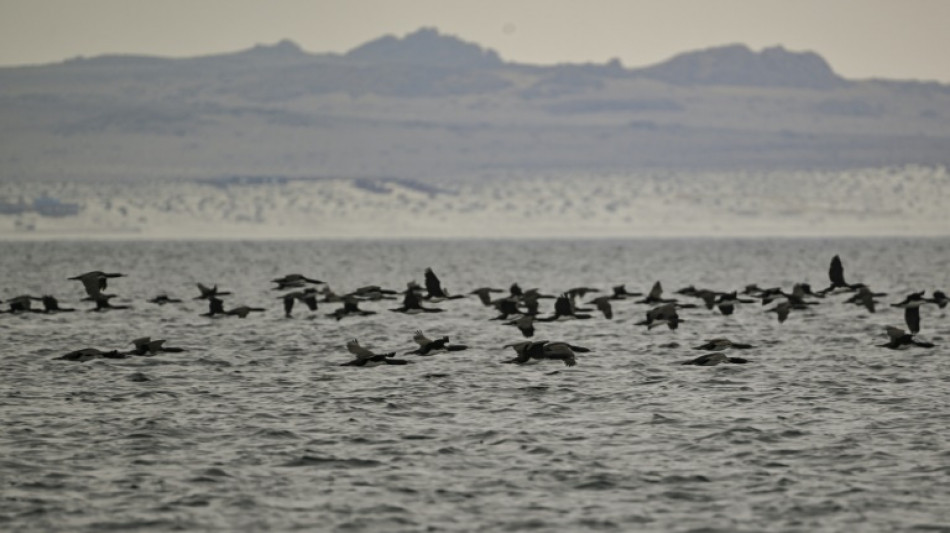
-
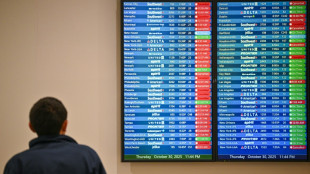 US to cancel flights as longest govt shutdown drags on
US to cancel flights as longest govt shutdown drags on
-
Home in Nigeria, ex-refugees find themselves in a war zone

-
 Doncic's Lakers hold off Wembanyama's Spurs, Blazers silence Thunder
Doncic's Lakers hold off Wembanyama's Spurs, Blazers silence Thunder
-
For Turkey's LGBTQ community, draft law sparks existential alarm

-
 Musk's $1 trillion pay package to face Tesla shareholder vote
Musk's $1 trillion pay package to face Tesla shareholder vote
-
Tonga rugby league star out of intensive care after seizure

-
 Argentine ex-president Kirchner goes on trial in new corruption case
Argentine ex-president Kirchner goes on trial in new corruption case
-
Dams, housing, pensions: Franco disinformation flourishes online
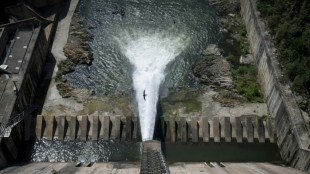
-
 Endo returns as Japan look to build on Brazil win
Endo returns as Japan look to build on Brazil win
-
Franco captivates young Spaniards 50 years after death

-
 German steel industry girds for uncertain future
German steel industry girds for uncertain future
-
IPL champions Bengaluru could be sold for 'as much as $2 billion'

-
 Budget impasse threatens Belgium's ruling coalition
Budget impasse threatens Belgium's ruling coalition
-
New Zealand ex-top cop admits to having material showing child abuse, bestiality

-
 BoE set for finely balanced pre-budget rate call
BoE set for finely balanced pre-budget rate call
-
Australian kingpin obtains shorter sentence over drug charge

-
 Weatherald's unenviable Ashes task: fill giant hole at top left by Warner
Weatherald's unenviable Ashes task: fill giant hole at top left by Warner
-
Ovechkin first to score 900 NHL goals as Capitals beat Blues

-
 On Mexico City's streets, vendors fight to make it to World Cup
On Mexico City's streets, vendors fight to make it to World Cup
-
Asian markets bounce from selloff as US jobs beat forecasts

-
 Philippine death toll tops 140 as typhoon heads towards Vietnam
Philippine death toll tops 140 as typhoon heads towards Vietnam
-
Kyrgios targets 'miracle' Australian Open return after knee improves

-
 'AI president': Trump deepfakes glorify himself, trash rivals
'AI president': Trump deepfakes glorify himself, trash rivals
-
Belgium probes drone sightings after flights halted overnight

-
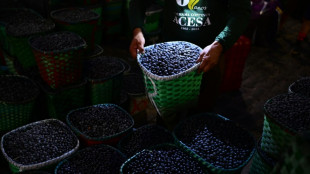 Five things to know about 'forest COP' host city Belem
Five things to know about 'forest COP' host city Belem
-
World leaders to rally climate fight ahead of Amazon summit

-
 Engine fell off US cargo plane before deadly crash: officials
Engine fell off US cargo plane before deadly crash: officials
-
Mexican leader calls for tougher sexual harassment laws after attack

-
 Meghan Markle set for big screen return: reports
Meghan Markle set for big screen return: reports
-
Japan deploys troops after wave of deadly bear attacks
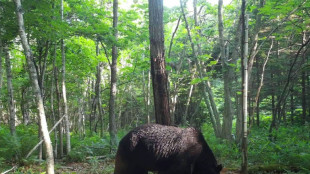
-
 FIFA announce new peace prize to be awarded at World Cup draw in Washington
FIFA announce new peace prize to be awarded at World Cup draw in Washington
-
Australia's Cummins hints at return for second Ashes Test

-
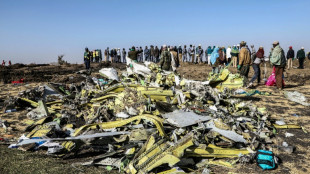 Boeing settles with one plaintiff in 737 MAX crash trial
Boeing settles with one plaintiff in 737 MAX crash trial
-
Man City win as Inter stay perfect, Barca held in Champions League

-
 French superstar DJ Snake wants new album to 'build bridges'
French superstar DJ Snake wants new album to 'build bridges'
-
Barca rescue draw at Club Brugge in six-goal thriller

-
 Foden hits top form as Man City thrash Dortmund
Foden hits top form as Man City thrash Dortmund
-
NBA officials brief Congress committee over gambling probe

-
 Inter beat Kairat Almaty to maintain Champions League perfection
Inter beat Kairat Almaty to maintain Champions League perfection
-
Newcastle sink Bilbao to extend Champions League winning run

-
 Wall Street stocks rebound after positive jobs data
Wall Street stocks rebound after positive jobs data
-
LPGA, European tour partner with Saudis for new Vegas event

-
 Eyes turn to space to feed power-hungry data centers
Eyes turn to space to feed power-hungry data centers
-
Jazz lose Kessler for season with shoulder injury

-
 League scoring leader Messi among MLS Best XI squad
League scoring leader Messi among MLS Best XI squad
-
MLS bans Suarez for Miami's winner-take-all playoff match

-
 McIlroy appreciates PGA of America apology for Ryder Cup abuse
McIlroy appreciates PGA of America apology for Ryder Cup abuse
-
Garnacho equaliser saves Chelsea in Qarabag draw

-
 Promotions lift McDonald's sales in tricky consumer market
Promotions lift McDonald's sales in tricky consumer market
-
Five things to know about New York's new mayor


Bird flu detected in Antarctica region for first time
Bird flu has been detected in the Antarctica region for the first time, according to British experts, raising concerns the deadly virus could pose a threat to penguins and other local species.
Scientists had been fearing that the worst outbreak of Highly Pathogenic Avian Influenza (HPAI) in history would reach Antarctica, a key breeding ground for many birds.
The British Antarctic Survey said its staff took samples from brown skua seabirds after they died on Bird Island in South Georgia, a British overseas territory east of South America's tip and north of Antarctica's main landmass.
The tests were sent to Britain and came back positive, the UK's polar research institute said in a statement on Monday.
The virus was most likely brought by birds returning from their migration to South America, where there has been a huge number of bird flu cases, it added.
Visitors to South Georgia and the South Sandwich Islands are under enhanced biosecurity measures, and scientific field work involving birds there has been stopped, the statement said.
There have been regular bird flu outbreaks since the virus first emerged in 1996.
Since mid-2021, much larger outbreaks started to spread southward to previously untouched areas including South America, leading to mass deaths among wild birds and tens of millions of poultry being culled.
- 'Devastating news' -
Michelle Wille, a bird flu expert at the University of Melbourne, said the spread of bird flu to the Antarctica region was "devastating news".
"The situation could change rapidly," she wrote on X, formerly Twitter.
Ian Brown, virology head at the UK's Animal and Plant Health Agency, warned last week that there was a risk migrating birds could spread the virus from South America to the Antarctica islands and then onto the main landmass.
This could be a "real concern" for populations of birds such as penguins that are unique to Antarctica, he told journalists.
Birds such as penguins that have never before been exposed to the virus would have no prior immunity, potentially making them more vulnerable.
In better news, the Animal Plant Health Agency also said last week that preliminary research had confirmed that the populations of two seabirds -- northern gannets and shag -- had shown immunity to bird flu.
Humans rarely catch bird flu, but when they do it is usually via direct contact with infected birds.
Earlier this month, a two-year-old girl died from bird flu in Cambodia, the third death recorded in the country this year.
The virus has also been detected in a growing number of mammals, raising fears it could mutate into a version that is more transmissible between humans.
L.Meier--VB




